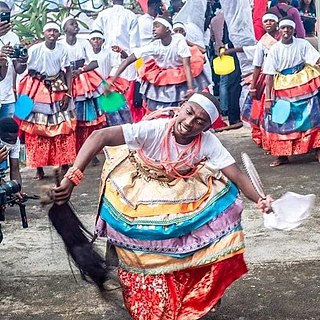
The Itsekiri are one of the Yoruboid subgroup of Nigeria's Niger Delta area, They speak a Yoruboid language and can be found in Delta State. The Itsekiris presently number 2.7 million people and live mainly in the Warri South, Warri North and Warri South West local government districts of Delta State on the Atlantic coast of Nigeria. Significant communities of Itsekiris can be found in parts of Edo and Ondo states and in various other Nigerian cities including Lagos, Benin City, Port Harcourt and Abuja. Many people of Itsekiri descent also reside in the United Kingdom, the United States and Canada. The Itsekiris are closely related to the Yoruba of South Western Nigeria and also close to the Okpe people and Edo peoples. The Itsekiris traditionally refer to their land as the Kingdom of Warri or 'Iwere' as its proper name – which is geographically contiguous to the area covered by the three Warri local government districts. The area is a key centre of Nigeria's crude oil and natural gas production and petroleum refining and the main town Warri forms the industrial and commercial nucleus of the Delta State region.

The Kingdom of Warri, Warri Kingdom or Iwere Kingdom, was established in 1480, was part of the Nigerian traditional states its ancestral capital is based in Ode-Itsekiri, Warri South LGA, Delta State, Nigeria with a palace erected in 1950s in the heart of the city of Warri, Warri South LGA, Delta State, Nigeria.

Erejuwa II was a Nigerian traditional title holder and paramount leader of the Itsekiri who was Olu of Warri from 1951 to 1964 and from 1966 to 1986. He was the 18th Olu of Warri Kingdom with the title Ogiame Erejuwa II. He succeeded his father Ginuwa II as Olu. Ginuwa II was a great grandson of Olu Akengbuwa the last Olu who died in 1848, he was crowned in 1936 after an interregnum that lasted 88 years when Warri's political leadership was dominated by merchant princes.
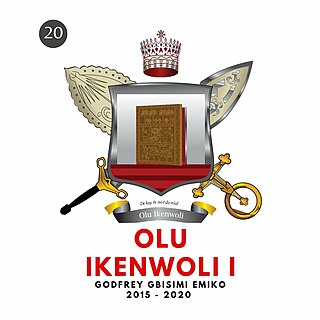
Ikenwoli Godfrey Emiko was a Nigerian traditional ruler.
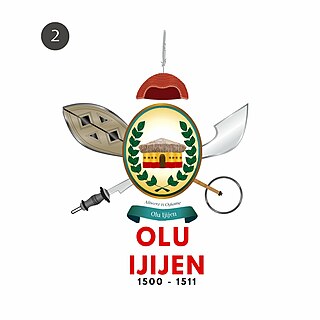
Olu Ijijen (Ogbowuru) was born to Olu Ginuwa. He is the 2nd Olu of Warri. He succeeded his father Ogiame Olu Ginuwa. He was the first King to reach Ode-Itsekiri as his father settled down at Ijala community which is the burial place for all future Olu's. He reigned from 1510 to 1538. He was succeeded by his brother Olu Irame.

Olu Irame was the 3rd Olu of Warri. He was the second son to Olu Ginuwa and succeeded his brother Olu Ogbowuru (Ijijen) as the 3rd Olu of Warri. It is stated that he banished the three gods and their worshipers from Ode-Itsekiri-Olu because of their incessant ''noise-making". The gods and their worshipers moved to Orugbo which is a community about 2 miles from Ode-Itsekiri-olu.
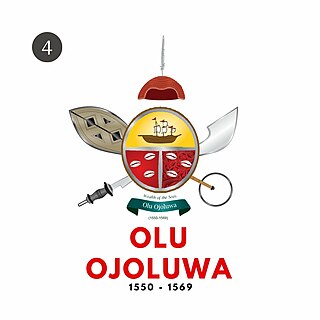
Olu Ojoluwa was an Itsekiri traditional ruler. He succeeded his father Ogiame, Olu Irame after his demise. He was crowned Ogiame Ojoluwa, the 4th Olu of Warri Kingdom at Ode-Itsekiri, the ancestral home of the Itsekiri. Olu Ojoluwa reigned for about nineteen years from about 1550 to 1569. During his reign, he commenced the process of integration of Ekpen's (Ekpenede) descendants of Okere with the local population in the kingdom.
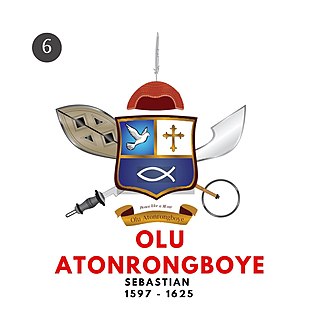
Olu Atorongboye (Olu Sebastian) was the sixth Olu of Warri who ruled over the Itsekiri and non Itsekiri people in the kingdom. He was the son to Olu Esigie and succeeded his father Olu Esigie as the 6th Olu of Warri. He was born Prince Eyomasan. Olu Atorongboye was the first Christian Olu to rule Warri Kingdom. He had a strong tie with the Portuguese King Philip in late 16th century, which led to him sending his son Olu Dom Domingos to study in Portugal from 1600 to 1611. He was succeeded by his son Olu Atuwatse I (Olu Dom Domingos)

Olu Atuwatse I was the 7th Olu of Warri who ruled over the Warri Kingdom. He was the son to Olu Atorongboye and succeeded his father Olu Atorongboye as the 7th Olu of Warri. He was initially home-schooled by his father and the Bishop in Ode-Itsekiri, which resulted in his ability to read and write in Portuguese. He was educated in Portugal from 1600 to 1611. He returned to Warri Kingdom as a graduate, making him the first graduate in Sub Saharan Africa Olu Dom Domingos was the second Christian Olu to rule Warri Kingdom. He married a Portuguese noblewoman, Maria Pereira, before returning to Nigeria with her in 1611.
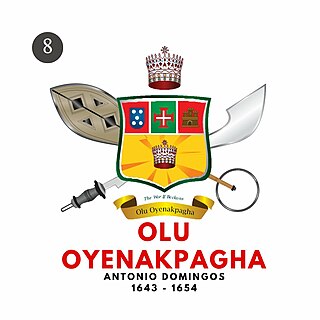
Olu Oyenakpagha was the 8th Olu of Warri who ruled over the Itsekiri people. He was named Omonighenren which translates to Prince with the golden skin. On ascension to the throne as Ogiame, Olu of Warri Kingdom, he was named Obanighenren which translates to King with the golden skin. His other name was Don Antonio Domingos. He was the son to Olu Atuwatse I and succeeded his father as the 8th Olu of Warri. He wrote a letter to Pope Clement X in 1652 which was delivered to the Pope successfully. He was educated at home and at an institute in Angola. Like his father, he married a Portuguese noblewoman. His son Olu Omoluyiri succeeded him.
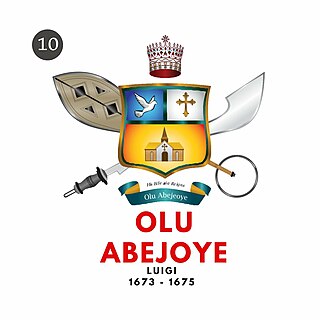
Olu Abejoye was the 10th Olu of Warri who ruled over the Itsekiri and non Itsekiri people in the kingdom. He was the son to Olu Omoluyiri, the 9th Olu of Warri Kingdom. He succeeded his father, Olu Omoluyiri as the 10th Olu of Warri. His Portuguese name was Luigi. He married a Portuguese noblewoman and was succeeded by his son Olu Akenjoye.
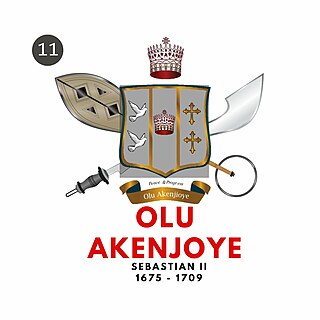
Olu Akenjoye was the 11th Olu of Warri who ruled over the Itsekiri and non Itsekiri people in the kingdom. He was the son to Olu Abejoye, the 10th Olu of Warri Kingdom. He succeeded his father as the 11th Olu of Warri. He took the title, Ogiame Sebastian II. He was succeeded by his son Olu Omagboye (Miguel).

Olu Omagboye was the 12th Olu of Warri who ruled over the Kingdom of Warri. He succeeded his father, Olu Akenjoye as the 12th Olu of Warri. He took the title, Ogiame Omagboye. His son Olu Akengboye succeeded him.

Olu Akengboye was the 13th Olu of Warri who ruled over the Kingdom of Warri. He succeeded his father, Olu Omagboye (Miguel) as the 13th Olu of Warri. He took the title, Ogiame Akengboye. His Portuguese name was Agostinho Sabastiao Octobia. His son Olu Atogbuwa succeeded him around 1734.

Olu Atogbuwa was the 14th Olu of Warri who ruled over the Kingdom of Warri. He succeeded his father, Olu Akengboye as the 14th Olu of Warri. He took the title, Ogiame Atogbuwa. His Portuguese name was Manuel Octobia. When he went to be with his fathers, he was succeeded by Olu Erejuwa I around 1760.

Olu Erejuwa was the 15th Olu of Warri who ruled over the Kingdom of Warri. He succeeded Olu Atogbuwa as the 15th Olu of Warri. He took the title, Ogiame Erejuwa I. His Portuguese name was Sebastiao Manuel Octobia. When he went to be with his fathers, he was succeeded by Olu Akengbuwa around 1795.

Olu Akengbuwa was the 16th Olu of Warri who ruled over the Kingdom of Warri. He succeeded his father Olu Erejuwa I as the 16th Olu of Warri. He took the title, Ogiame Akengbuwa. He was also called Eyeolusan Joao. When he went to be with his fathers, there was a period of crisis following the death to the potential successors which was followed by a period of political Interregnum. His son Prince Oritsemone left Ode-Itsekiri during the period of the crisis to form Usele Community.

Olu Ginuwa II was a Nigerian traditional title holder and paramount leader of the Itsekiri who was Olu of Warri from 1936 to 1949. He was the 17th Olu of Warri Kingdom with the title Ogiame Ginuwa II. He was born Emiko Ikengbuwa. He succeeded his grandfather Olu Akengbuwa as Olu of Warri after an interregnum that lasted 88 years when Warri's political leadership was dominated by merchant princes.

Olu Atuwatse II was a Nigerian traditional title holder and paramount leader of the Itsekiri who was Olu of Warri from 1987 to 2015. He was the 19th Olu of Warri Kingdom with the title Ogiame Atuwatse II. He was born Godwin Toritseju Emiko. He succeeded his father Erejuwa II as the Olu of Warri. He was a lawyer by profession and was a recipient of the Commander of the Niger (CON) award from the Nigerian Government. He died in 2015 and was succeeded by his brother Ikenwoli.

Ogiame Atuwatse III is a Nigerian traditional king of the Kingdom of Warri in the Delta State. He was born Utieyinoritsetsola Emiko, also known as Tsola Emiko, on April 2, 1984 to Olu Atuwatse II, the 19th Olu of Warri, and Gladys Durorike Emiko. He is also a descendant of Olu Akengbuwa.





















